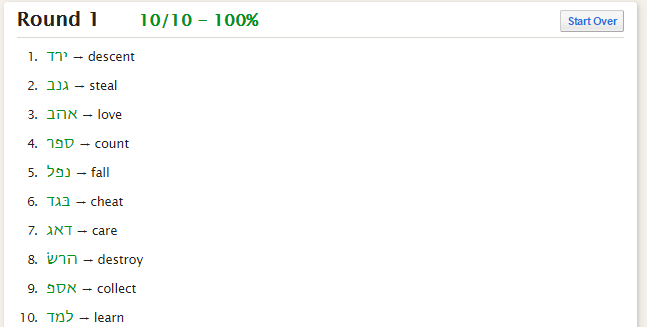My friends after my TED Talk was over: That went really well, Jason!
Me: Sank god.
Phew, that’s a relief. My TED Talk is now finished, and I actually feel confident in how I did. I didn’t require any notes and I don’t believe that I stuttered once. Just what I was hoping for.
Although it might seem as though what I did required very little effort, the truth was that I worked extremely hard in order to achieve the result I got.
I spent hours and hours rehearsing my presentation, in a variety of different settings and with a variety of different people. The first person I practiced in front of was my dad. I knew this would be a good idea because it is impossible for him to give me criticism. Sometimes, this can be an issue, but, for a first trial, it was just perfect. I needed to become comfortable speaking what I wrote in front of other people, and the best way to ease my way into this cold pool was to put one foot in at a time.
After I practiced in front of my dad, I realized where I needed to spend additional time rehearsing, although he seemed to think I did it perfectly (On his standards, I would have failed)!
I basically spent the next day practicing for myself in front of my bedroom window, which overlooks the street. I did this because I knew that I would be able to see the sun setting and also because I would be able to hear the cars moving. I wished to give myself minor distractions, so I would be prepared in case one of the audion doors opened during my presentation (which ended up happening for another presenter).
Later that same night (Wednesday), I pulled my brother away from his Phineas and Ferb episode and forced him to watch me. I knew he wouldn’t really be listening and that he would just keep moving around in his chair. 9-year-olds are antsy and don’t care about learning Hebrew. Well...most. When I was 9 that would’ve sounded like a dream come true!
Anyways, sure enough, my brother lived up to my expectations. Fidgeting constantly during my speech, he even curled himself in a ball and tried to fit under the couch. I don’t quite know his motive, but it definitely helped me get used to any distractions I might face.
The next night, I pretty much did the exact same thing. Practice, practice, practice, consider watching a Downton Abbey episode but ultimately decide it would not be the best choice, practice, practice. Then, right before I went to bed, I video chatted with a trusted friend from the morning block, and she gave me tips on how to improve my TED Talk. I definitely felt prepared.
Friday morning was an extremely stressful affair. I was so worried that the snow would send us home, and I wouldn’t be able to get it over with. Luckily, this did not occur.
As the time drew closer to when I would give my TED Talk, I became more and more nervous. I practiced both in IE and during lunch in front of some friends who basically told me one thing: SLOW DOWN. Ok, fine. I guess I can slow down.
Going first was something I knew I had to do. There’s nothing worse than waiting for your turn to come, because you can’t truly enjoy the talks before you without being stressed. Going first means that, although you are constantly comparing your talk to theirs, you know that there is nothing that can be done about it.
So, when I got to the audion, I got up on stage, and gave my TED Talk. There’s nothing quite like that feeling when you’re driving home your message, hoping that you can connect to your audience. “When we berate the people who speak other languages, practice other religions, lead other lives, we destroy diversity.” These powerful lines that concluded my presentation were actually fun to say. It’s hard to think that giving a 4-5 minute talk could ever be fun, but when you’re that close to the end, and you think you’ve done a pretty good job thus far, the light at the end of the tunnel is so close. You just have to walk one more step. You just have to say two more sentences. And then you’re done.
And everything’s grand.
Now that the project is officially over, I’m feeling a bit nostalgic. I’ve never felt that way about a school assignment before, so I am definitely truly grateful that I was given this time to delve into the Hebrew language. I will be continuing my journey, but not my blog. So, as FunForLouis, one of my favorite YouTubers, says at the end of every video, “Peace out. Enjoy life. Live the adventure.” Shalom! (שלום)
Weekly Comments:
Toni McFarland
Hannah Gruen
Sarah Kollender
Weekly Comments:
Toni McFarland
Hannah Gruen
Sarah Kollender















